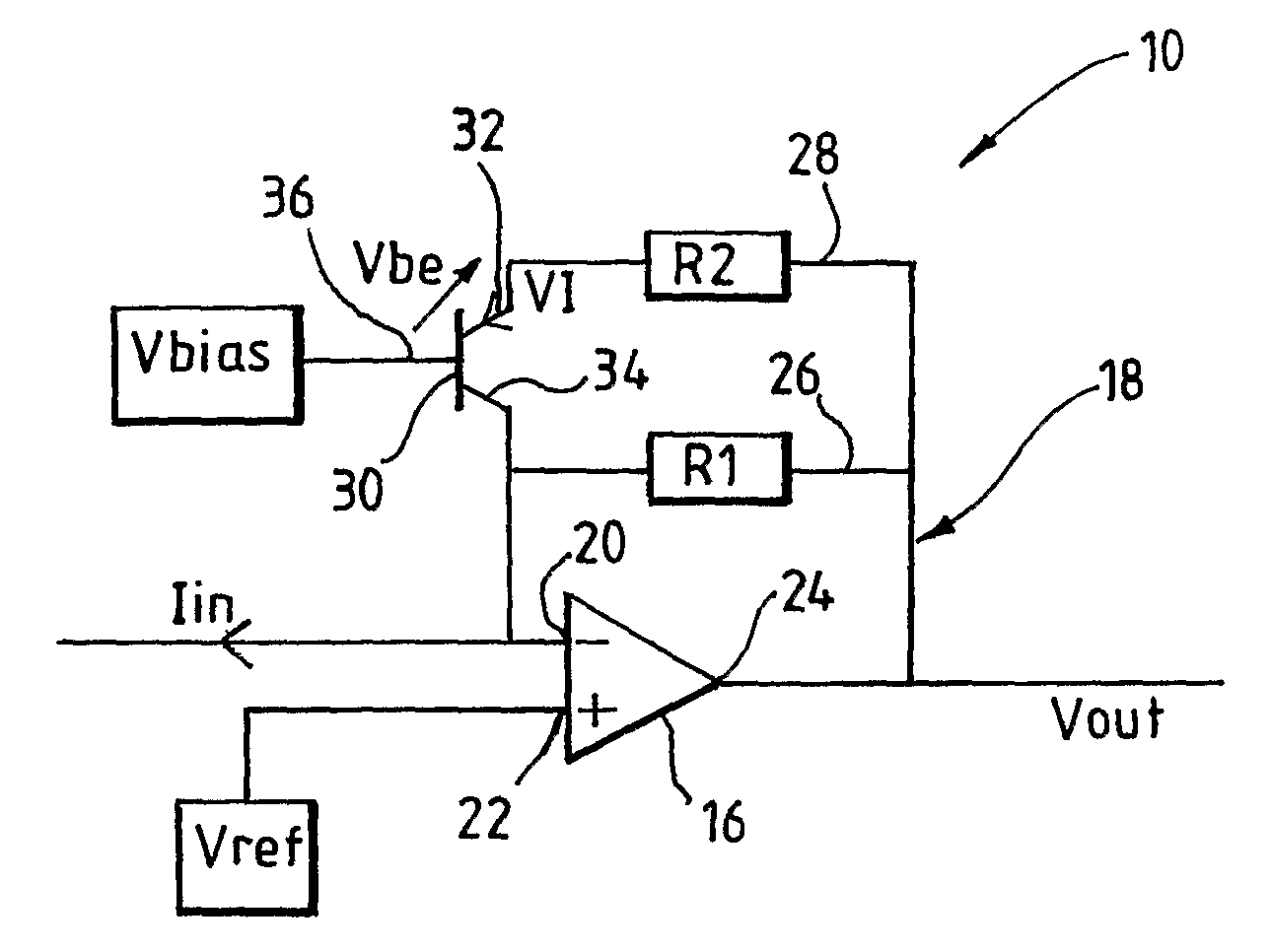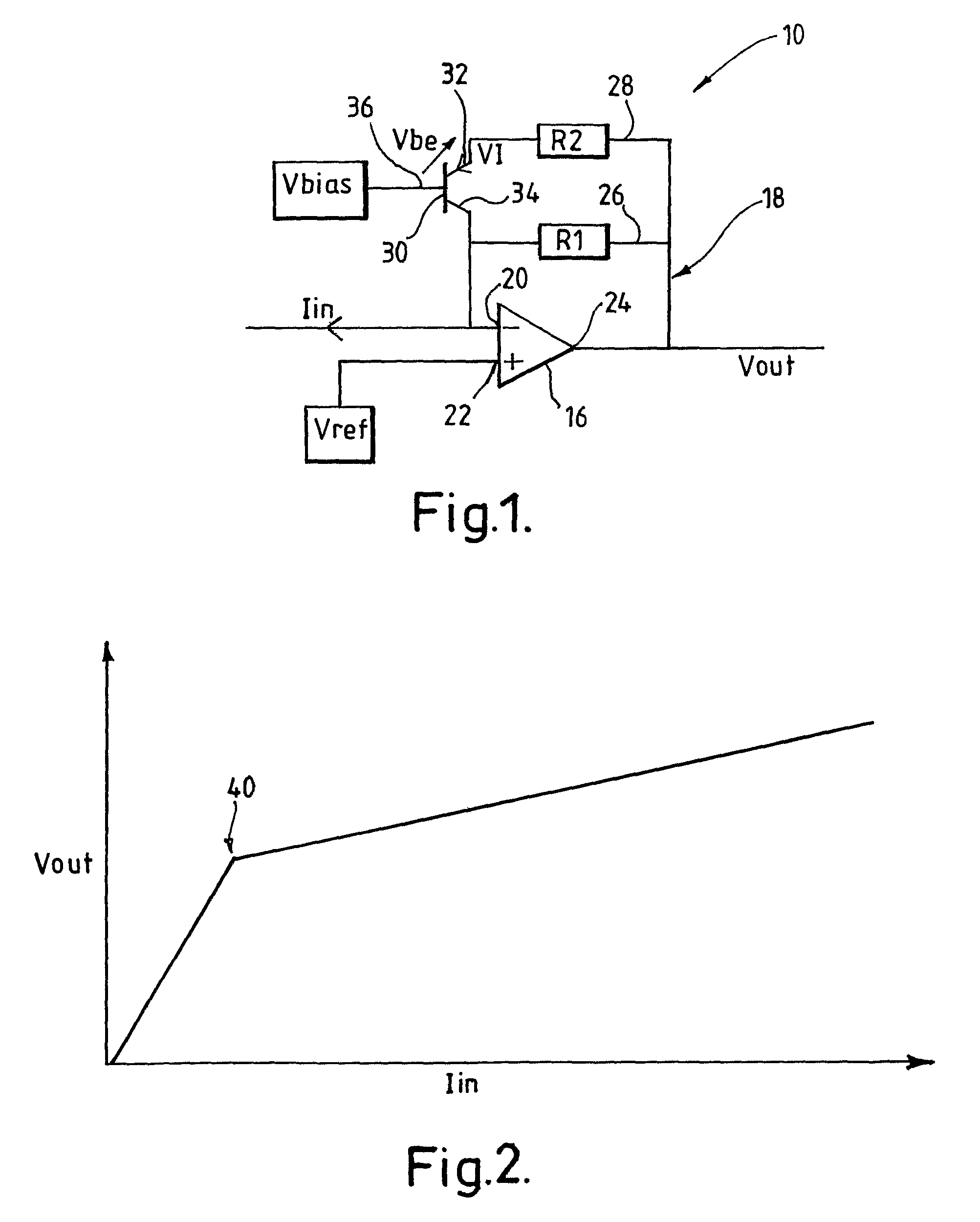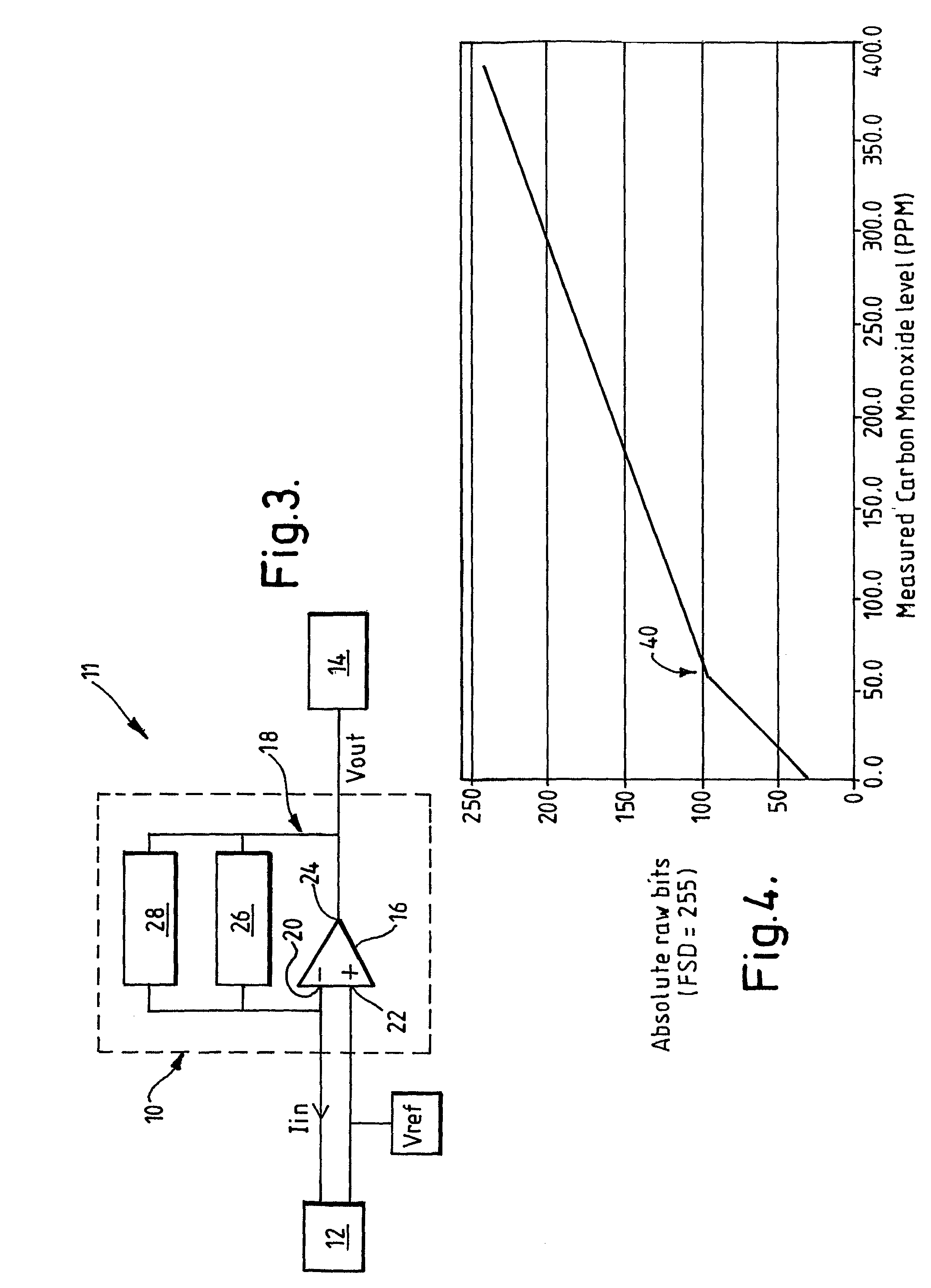Amplifier for multi-use of single environmental sensor
an environmental sensor and amplifier technology, applied in the field of electric circuits, can solve the problems of unreliable or unpredictable operation, signal rounded to levels too coarse to be of use, and insufficient measurement accuracy over a range of, say, 0 to 500 ppm, and achieve the effect of maintaining measurement accuracy
- Summary
- Abstract
- Description
- Claims
- Application Information
AI Technical Summary
Benefits of technology
Problems solved by technology
Method used
Image
Examples
Embodiment Construction
[0024]With reference to FIGS. 1 and 3, an electrical circuit 10 is provided which has a non-linear response to an input signal, Iin. For example, in a building management safety system, the circuit 10 can be used in a detection circuit 11 with a single detection element 12 to monitor carbon monoxide (CO) levels and an analogue-to-digital converter (ADC) 14 to convert the output into an appropriate form. The detection circuit 11 is used within the building management safety system to indicate the presence of a fire and / or the presence of a toxic level of carbon monoxide.
[0025]The circuit 10 comprises an operational amplifier (op-amp) 16 having a feedback loop 18. The operational amplifier 16 has an inverting input 20, a non-inverting input 22 and an output 24. The detection element 12 is connected to the inverting input 20 of the operational amplifier 16 and provides an input signal current, Iin. The operational amplifier 16 provides an output voltage, Vout, which is connected to the...
PUM
| Property | Measurement | Unit |
|---|---|---|
| bias voltage | aaaaa | aaaaa |
| voltage | aaaaa | aaaaa |
| temperature | aaaaa | aaaaa |
Abstract
Description
Claims
Application Information
 Login to View More
Login to View More - R&D
- Intellectual Property
- Life Sciences
- Materials
- Tech Scout
- Unparalleled Data Quality
- Higher Quality Content
- 60% Fewer Hallucinations
Browse by: Latest US Patents, China's latest patents, Technical Efficacy Thesaurus, Application Domain, Technology Topic, Popular Technical Reports.
© 2025 PatSnap. All rights reserved.Legal|Privacy policy|Modern Slavery Act Transparency Statement|Sitemap|About US| Contact US: help@patsnap.com



